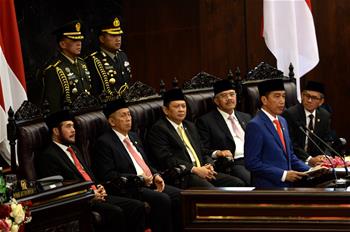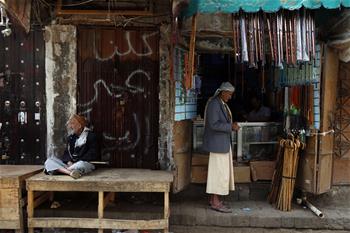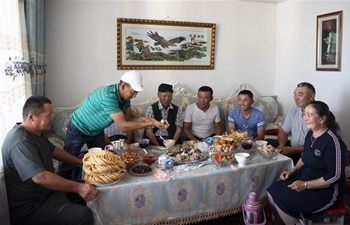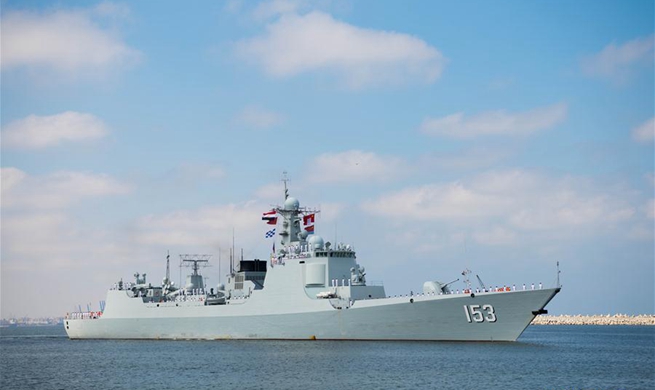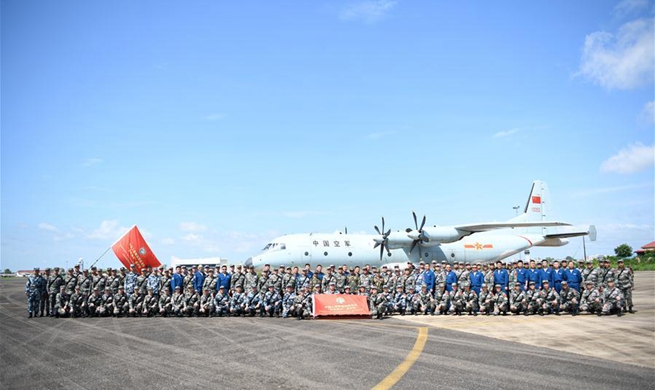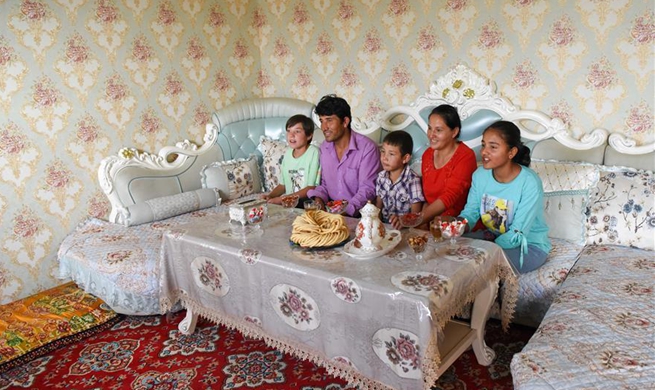by Burak Akinci
ANKARA, Aug. 17 (Xinhua) -- As the Turkish-U.S. Joint Operations Center for a safe zone in northern Syria is expected to start operation soon, Turkey's ambitious plan to return the large number of Syrian refugees in its territories will also be put in motion.
On Friday, Turkish Defense Minister Hulusi Akar said the Joint Operations Center will fully function next week in Turkey's southeastern province of Sanliurfa near the Syrian border.
Since the start of the Syrian war in 2011, Turkish President Recep Tayyip Erdogan has adopted an open-door policy, offering shelter, education, health care and a safe haven for Syrians fleeing the conflict in their country, a move hailed by the international community.
However in recent years, Turkey has been increasingly disturbed by a variety of issues that came along with the 3.6-million Syrian refugees it hosts, mainly security concerns and a growing public resentment toward the refugees.
Over the years, the Syrians' prolonged stay has greatly affected the popularity of Erdogan, especially amid a faltering economy that triggered soaring inflation which put many Turks out of work.
According to Erdogan, Turkey has spent nearly 40 billion U.S. dollars in absorbing the refugees.
"The setback for President Erdogan in March's local elections with the loss of major cities such as Istanbul and Ankara is widely seen as a result of his refugee policy," Oytun Orhan, a Syria specialist at the Ankara-based Middle East Studies Center, told Xinhua.
Orhan noted that the safe zone agreement between Turkey and the United States, which was concluded on Aug. 7 despite the two NATO allies' conflicting interests in Syria, has two major objectives.
"The first one is for Turkey to get rid of the Kurdish People's Protection Units (YPG) fighters at its southern border, and the second one ... is to send back tens of thousands of Syrians in Turkey to their country through the safe zone that would later turn into a peace corridor," he said.
Turkey considers the YPG, a U.S. ally in the fight against the Islamic State (IS) militant group, as a terrorist threat.
A safe zone to be established in the territories currently controlled by the YPG would naturally allow the gradual resettlement of Syrians, according to Turkish officials.
"We aim to accelerate the return of Syrian refugees to their homes," Erdogan told reporters in early August before the signing of the Turkish-U.S. deal, warning of a new military offensive.
Currently, intolerance against the Syrian refugees is mounting in Turkey. The public accuse them of taking their jobs and occupying public services as unemployment has risen to 13 percent since their arrival eight years ago.
For instance, Turks are posting pictures on social media of Syrians lying under the sun in beaches, smoking hookah and barbecuing with their family, calling on them to "return and fight for their country."
Turkish officials said as many as 340,000 Syrians have returned home voluntarily since 2016, resettling in two areas that the Turkish army controls after two incursions in northern Syria.
"We want to use the peace corridor to encourage Syrians to return to their homeland and start building a new future there, and the international community also bear the responsibility for the reconstruction efforts," a Turkish official said on condition of anonymity.
The source, however, refused to give a specific number of Syrians who would resettle, saying relevant discussions were underway with the Americans who still have a military presence in northern Syria.
Orhan believed the number of Syrians to resettle under the safe zone will be limited to "several hundred thousand," which will offer only a partial relief to Turkey's refugee problem.
"We have to be realistic. Thousands of people would return to their homeland, which is one of the essential requests from Ankara out of the safe zone, but not all of them will go back until there is a stable and lasting peace," he explained.
Observers noted Ankara and Washington have yet to bridge some differences before putting the deal of the safe zone into implementation.
Over the past eight years, 430,000 Syrian babies have been born in Turkey, according to official figures.
However, only 40 percent of the Turks showed empathy toward the refugees in July, down from 72 percent in 2016, according to a survey conducted by Turkish polling agency Konda.



